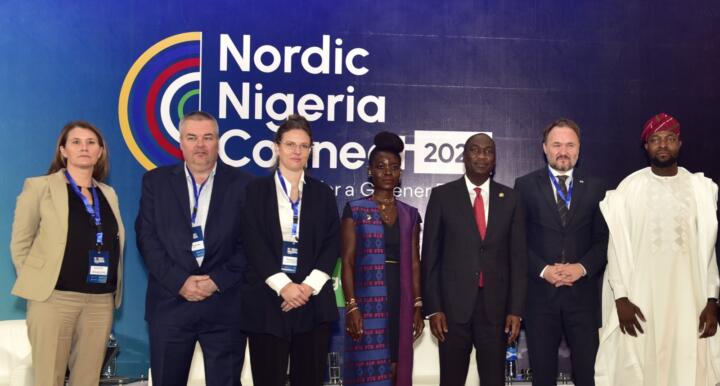Arla Foods Nigeria, the renowned producer of Dano milk, has unveiled an ambitious 4-year energy transition plan. This strategic initiative aims to establish a solar power plant for its cutting-edge dairy farm located in Kaduna, with the objective of achieving a robust installed capacity of up to 750KVA by the year 2027.
The revelation came from Peder Pedersen, the Managing Director of Arla Foods Nigeria, during his address at the commencement of the 2023 Nordic Nigeria Connect held on Tuesday at the Lagos Intercontinental Hotel. The event, themed “Innovation for a Greener Future,” underscored Arla Foods’ commitment to sustainable practices and forward-looking solutions.
Pedersen articulated that the energy transition plan is intricately woven into the fabric of the company’s sustainability strategy. It aligns with their overarching vision to shape the future of dairy by fostering health and inspiration globally, naturally. This is achieved by taking decisive actions that contribute to a resilient planet, thereby enhancing the environmental conditions for succeeding generations.

The dairy farm in Damau, Kaduna State, has been reliant on diesel generators since its inauguration in May 2023 due to the lack of connectivity to the national grid. In response to this energy challenge, Arla Foods Nigeria has set forth a comprehensive plan to harness solar power, marking a significant stride towards a more sustainable and eco-friendly operation.
Akalaka Obazei, the Senior Manager of Corporate Affairs at Arla Foods Nigeria, provided a detailed breakdown of the company’s solar power transition project during the Energy Transition deep dive session. She revealed that the initial phase of the project involves a hybrid solution, combining a standard 250kVA solar setup with diesel. This hybrid approach is anticipated to result in an annual diesel cost saving of approximately Euro 143,910. Additionally, it is projected to curtail carbon emissions (CO2e) by around 300 to 350 tons per year, achieving a commendable one-year payback period.
Obazei outlined the trajectory of the project, indicating that the power generation capacity is set to escalate to 550kVA by 2025. The ultimate goal of achieving a robust 750kVA installed capacity is earmarked for realization by 2027, coinciding with the farm’s full operational status.
Addressing the proactive stance taken by Arla Foods Nigeria in anticipation of the energy transition, Obazei emphasized, “Right from inception during the farm design phase, we had the energy transition in our minds. We have the roof space that can give us the targeted 750kVA already in place, and there is room for further expansion.”
In terms of financing for this substantial project, Obazei disclosed that Arla’s 8,500 farmer-owners will play a pivotal role in funding the initiative. This underscores their steadfast belief in energy transition and aligns with their enduring commitment to sustainability. She stressed the imperative for businesses, including Arla Farm, to pivot towards renewable energy, given the escalating costs of fossil fuels and the environmental repercussions associated with their usage.
Taking the podium, Snorri Sigurdsson, the Senior Manager of Raw Milk Supply and Production at Arla Foods, championed a compelling case for the Kaduna farm. He asserted that the facility stands as the most advanced in Africa, designed and operated in adherence to the highest global standards and best practices.
Sigurdsson highlighted the farm’s exceptional attributes, including a high-yielding breed sourced from the best European farms and state-of-the-art technology ensuring optimal comfort and performance for both cows and feed. He underscored Arla Foods’ unwavering commitment to sustainable dairy farming in Nigeria, emphasizing substantial investments in backward integration to propel Nigeria towards self-sufficiency in milk production.
Arla Foods, as a dairy cooperative, boasts over 8,400 farmer-owners spanning seven Northern European countries. The company’s dedication to producing natural, healthy, and high-quality dairy products traces its roots back to the 1880s when Danish and Swedish dairy farmers united with a shared vision: to create and provide the best dairy products. This longstanding philosophy continues to drive Arla Foods towards innovation and sustainability in the contemporary landscape.
Support InfoStride News' Credible Journalism: Only credible journalism can guarantee a fair, accountable and transparent society, including democracy and government. It involves a lot of efforts and money. We need your support. Click here to Donate
